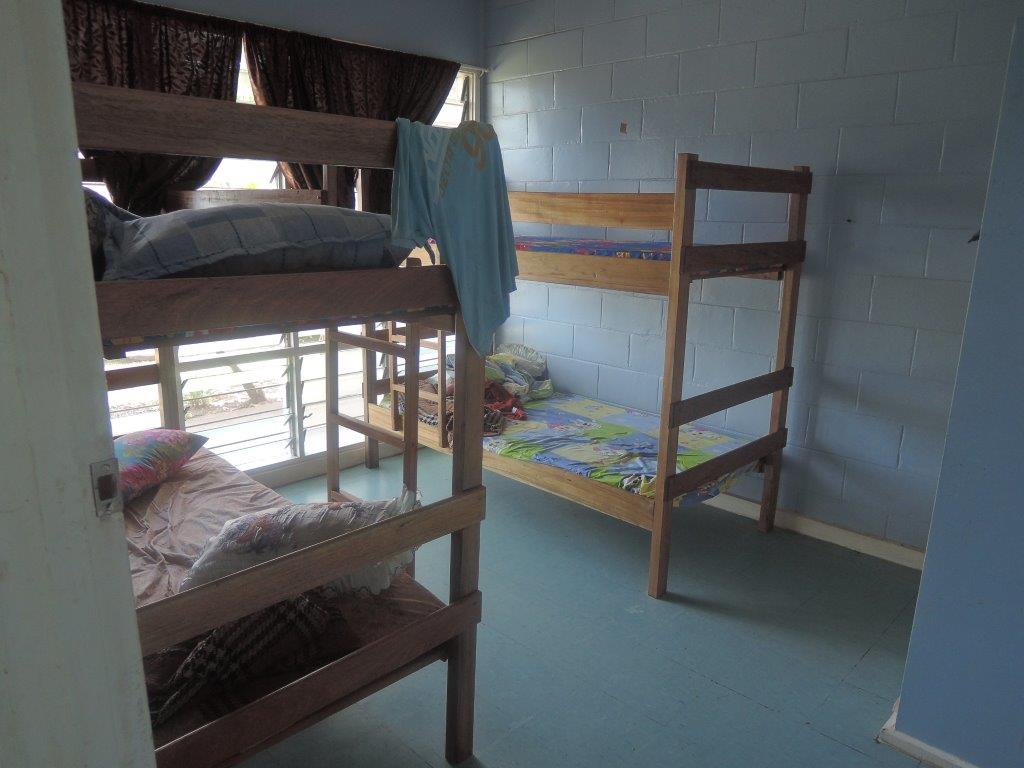One of the most satisfying things I have seen through my involvement with Femili PNG is the changed situation with regards to Lae’s safe houses. I first went to Lae with my colleague, Kamalini Lokuge, at her suggestion to look at what could be done by way of follow up to the MSF Family Support Centre project in Lae for survivors of family and sexual violence in February 2013. At that time, Lae’s two safe houses were not working well. Finding safe accommodation for a survivor was a major challenge. And I remember that one of the first things we considered was setting up a new safe house. After a few discussions though, we realised that this was not the right approach. Lae already had two safe houses. What was the point of setting up a third? Rather the challenge was to get those safe houses to work better. Indeed, that was the challenge for the entire sector. To get it to work better to provide services to survivors. And so, based on some advice from wise people like Ume Wainetti, Chair of the PNG Family and Sexual Violence Action Committee, and from the staff of the MSF project in Lae, we formulated the idea of setting up a Case Management Centre in Lae.
In February 2014, the Australian Government announced that it would support the project. We began operations in July 2014. A little over one year on, and we have provided assistance to over 400 clients and their families. There is still a long way to go, but the safe house situation has definitely been turned around. Both safe houses are functioning much better. Both are often full, and host between 10 and 16 clients and their children, staying there for anywhere between a couple of days to several weeks.
With project funding, we have been able to provide one of the safe houses with a new, more secure fence, and with an extension, to create a shower area and kitchen for the women and their children to make their stay more comfortable. We have been able to provide the other safe house with bunk beds, a table and cooking equipment. We also provide most clients with food, to reduce the burden on the safe houses, both of which operate on meagre budgets.
Not everything is fixed—one of the remaining challenges is finding longer-term options for women waiting to have their cases heard in court. But no doubt there is a major difference between then and now. Daisy Plana used to run the MSF project in Lae. Now she’s our CEO. She recalled that getting accommodation for women who needed it in Lae used to be a “huge issue”. Now, she says, if a client needs a safe place, they will be accommodated, no matter who refers them.
It’s a small, but important step for the women of Lae, and one that has several lessons.
First, it confirms the value of working in partnership. PNG has some great NGOs, and many dedicated public servants. They need more support. Together we can achieve more.
Second, don’t always build something new: work with what there is, and see if it can be improved.
Third, recurrent costs are as or more important than capital ones. I’m glad we are able to spend our funds on driving the clients to and from the safe house, and helping to feed and clothe them while they are there. In this way, we’re providing an essential service, and we’re extracting much more value from existing assets. Our funds go further, and earlier NGO investments get a new lease of life and a higher return.
There’s no guarantee that problems with Lae’s safe houses won’t recur in the future. There are always risks. But by developing a culture of collaboration and service delivery we can minimise that risk, and deliver real results for those who have suffered unimaginable pain.
Stephen Howes is the Chair of the Management Committee of Femili PNG, and Director of the Development Policy Centre. Femili PNG’s work is supported by the Australian aid program, Oxfam and a range of partners. For more information, or to support Femili PNG’s work, visit its website, where this post first appeared.



Leave a Comment